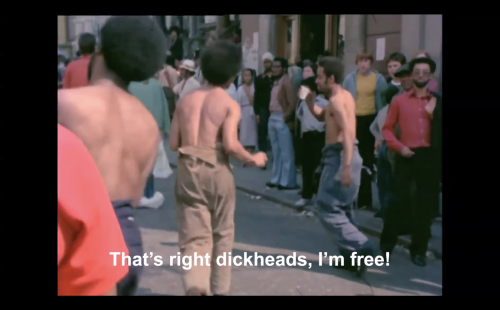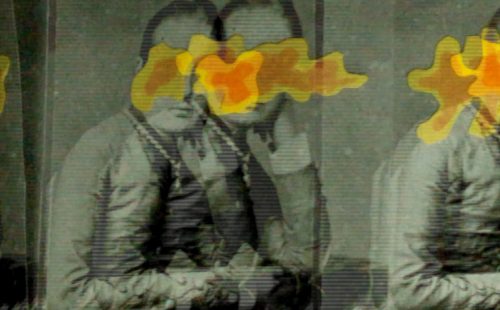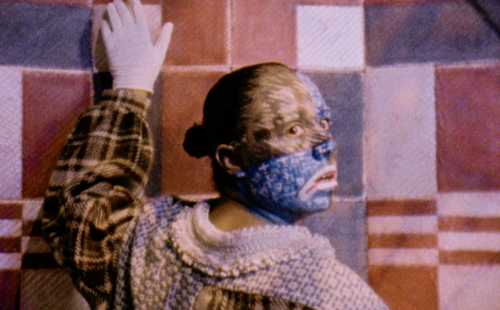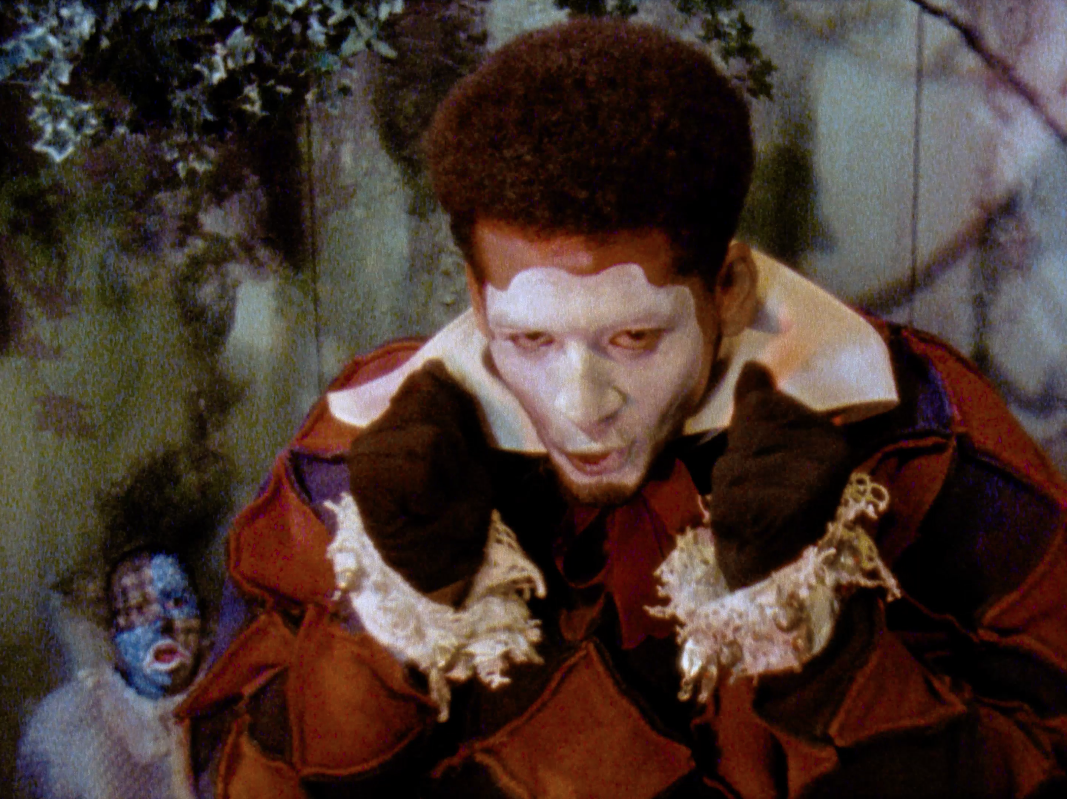
The Selected programme was established 10 years ago with the aims of supporting artist filmmakers to gain greater visibility and to bring new, diverse moving image work to audiences. Each year the artists who are shortlisted for the Film London Jarman Award nominate artists who are earlier in their careers and from those nominations a programme is curated by videoclub and Film London Artists’ Moving Image Network (FLAMIN), which is – usually – shown with venues around the UK. This year the programme was shown online between 6 and 12 July; scroll down for the trailer to get a glimpse of the programme.
The nominators for this year’s programme of Selected (and the artists shortlisted for the Jarman Award in 2019) are: Cécile B. Evans, Beatrice Gibson, Mikhail Karikis, Hetain Patel, Imran Perretta and Rehana Zaman.
Artists for the 10th year of Selected are: Ayo Akingbade, Beverley Bennett, Danielle Brathwaite-Shirley, Rabz Lansiquot, Jennifer Martin, Sharif Persaud & Tim Corrigan, Tanoa Sasraku and Rhea Storr.
Due to COVID-19 and social distancing – we showed the programme free online in 2020; the programme was available between 6 – 12 July – in the Vimeo player below. The programme was shown in partnership with Fabrica Gallery, Lighthouse, Phoenix, Spike Island and Vivid Projects.
Programme of films (running order)
Sharif Persaud & Tim Corrigan, The Mask, 2017, 3:45 mins
Tanoa Sasraku, O’ Pierrot, 2019, 13 mins
Danielle Brathwaite-Shirley, TRANS-PORT ME, 2019, 11:49 mins
Rhea Storr, A Protest, A Celebration, A Mixed Message, 2018, 12 mins
Ayo Akingbade, So They Say, 2019, 11 mins
Jennifer Martin, TEETH, 2019, 18:15 mins
Rabz Lansiquot, Nyansapo, 2017, 11 mins
Beverley Bennett, Amine, 2017, 11:29 mins
Selected X trailer:
About the films and artists
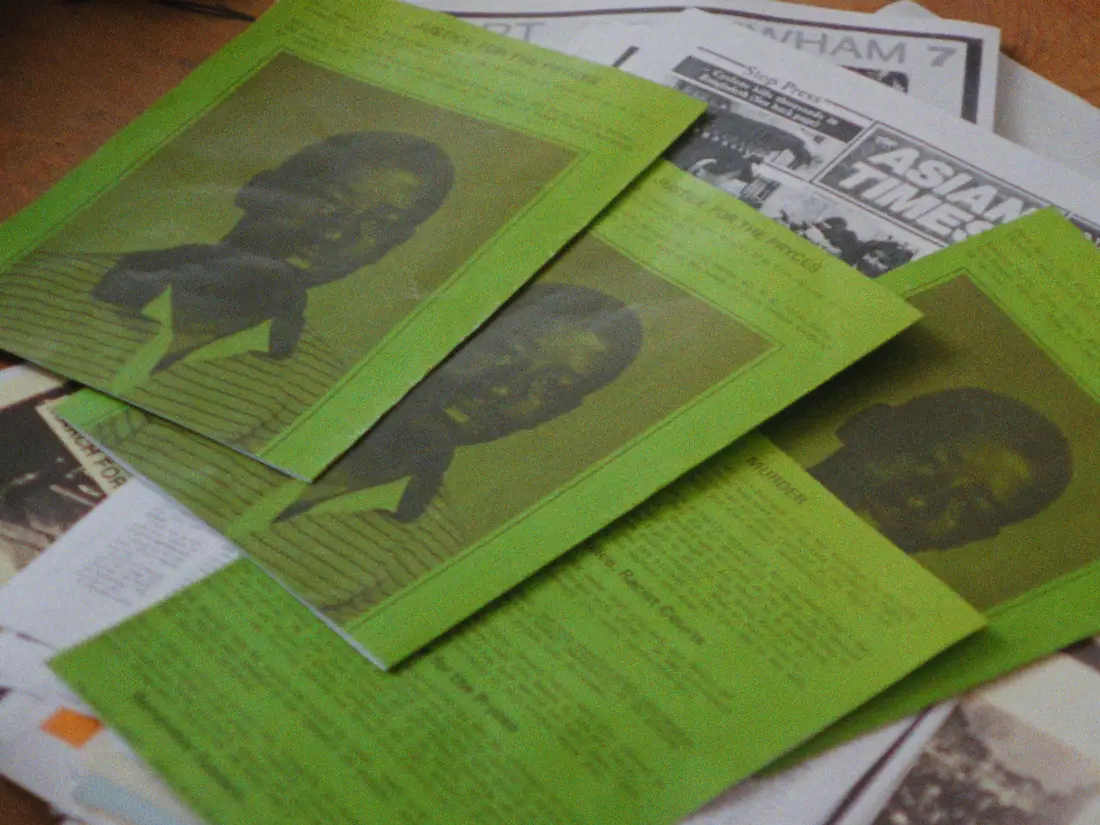
Ayo Akingbade, So They Say, 2019
Set in 1985 and the present day, the film explores and reflects on the often forgotten histories of black and brown community struggle in East London. The legacy of community and activist group, Newham Monitoring Project is spotlighted.
Ayo Akingbade works predominantly with moving image, addressing notions of power, urbanism and stance. Interested in the fluid boundaries between the self and the other, she gathers local and cultural experiences in intimate and playful interpretations.
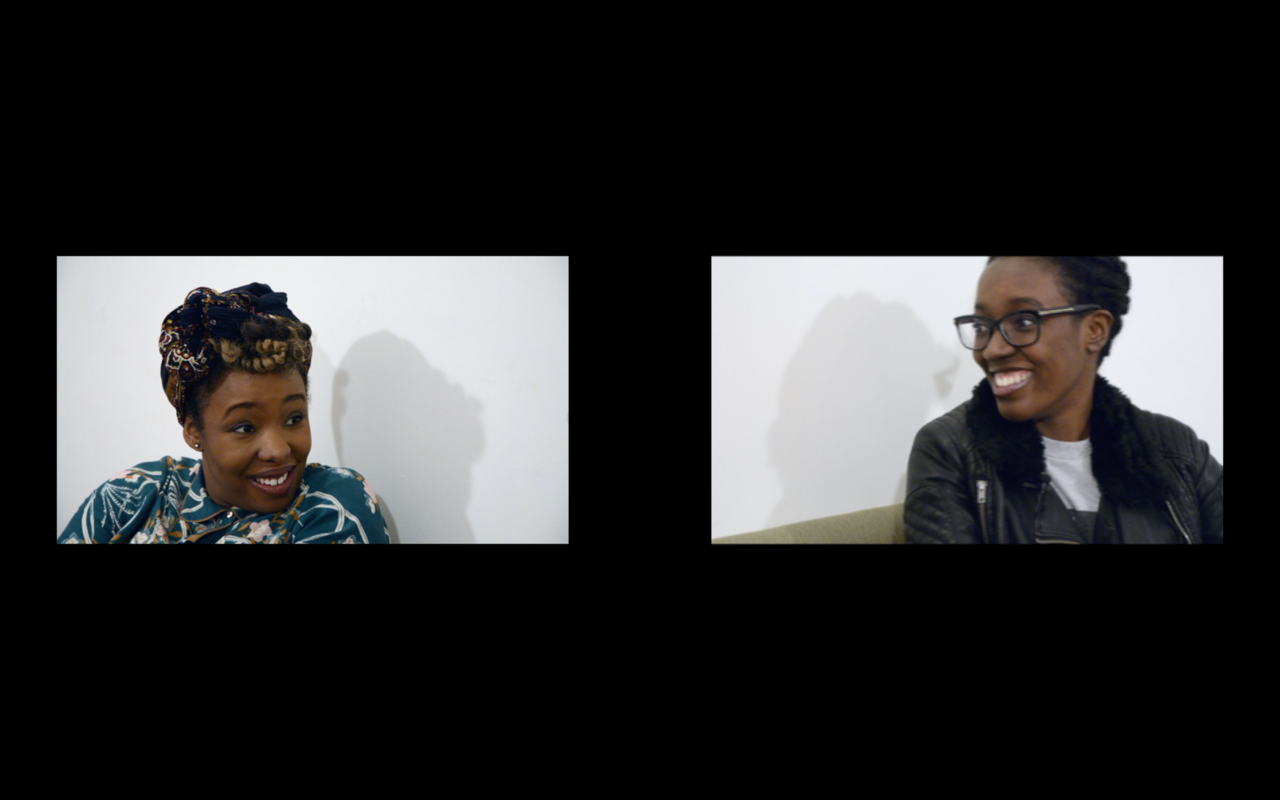
Beverley Bennett, Amine, 2017
Commissioned as part of the Philomela’s Chorus film series in 2017, Amine is best described as a tapestry of voices. The film reveals the multi-faceted and complex experiences of what it is to be a black womxn in the UK today. Featuring testimonies from black womxn all over the country, the stories of family, friends, friends-of-friends and acquaintances from varying backgrounds and age groups are woven together, intricately. The testimonies come from a series of unstructured, conversational and kitchen table interviews organised by artist Beverley Bennett, about societal perceptions on black womxn as racialised bodies, overdetermined from without in the Fanonian sense. When seen together, the fragments of positive and negative encounters and experiences, and the rainbow of emotions expressed, create a story of vulnerability, pain and joy that is at once liberatory and heartbreaking. The film illustrates how, while the black British female experience is varied in many respects, intergenerational trauma caused by over-determination in a society whose biases are slanted against black womxn, remains a constant.
Beverley Bennett is an artist-filmmaker. Her practice revolves around the perpetual possibilities of drawing, performance and collaborative experiments with sound. Bennett’s work has been shown nationally and internationally; venues include the CinemaAfrica Film Festival, Stockholm (2018), Encounters Short Film Festival, Bristol (2017), Wysing Art Centre, Cambridgeshire (2017) Spike Island (2017), New Art Exchange, Nottingham (2016), National Gallery of Jamaica, Kingston (2016), Bluecoat, Liverpool, (2010). Beverley Bennett lives and works in London, and is a studio holder at Kingsgate Workshop and Trust. She received her MA in Fine Art in 2009.
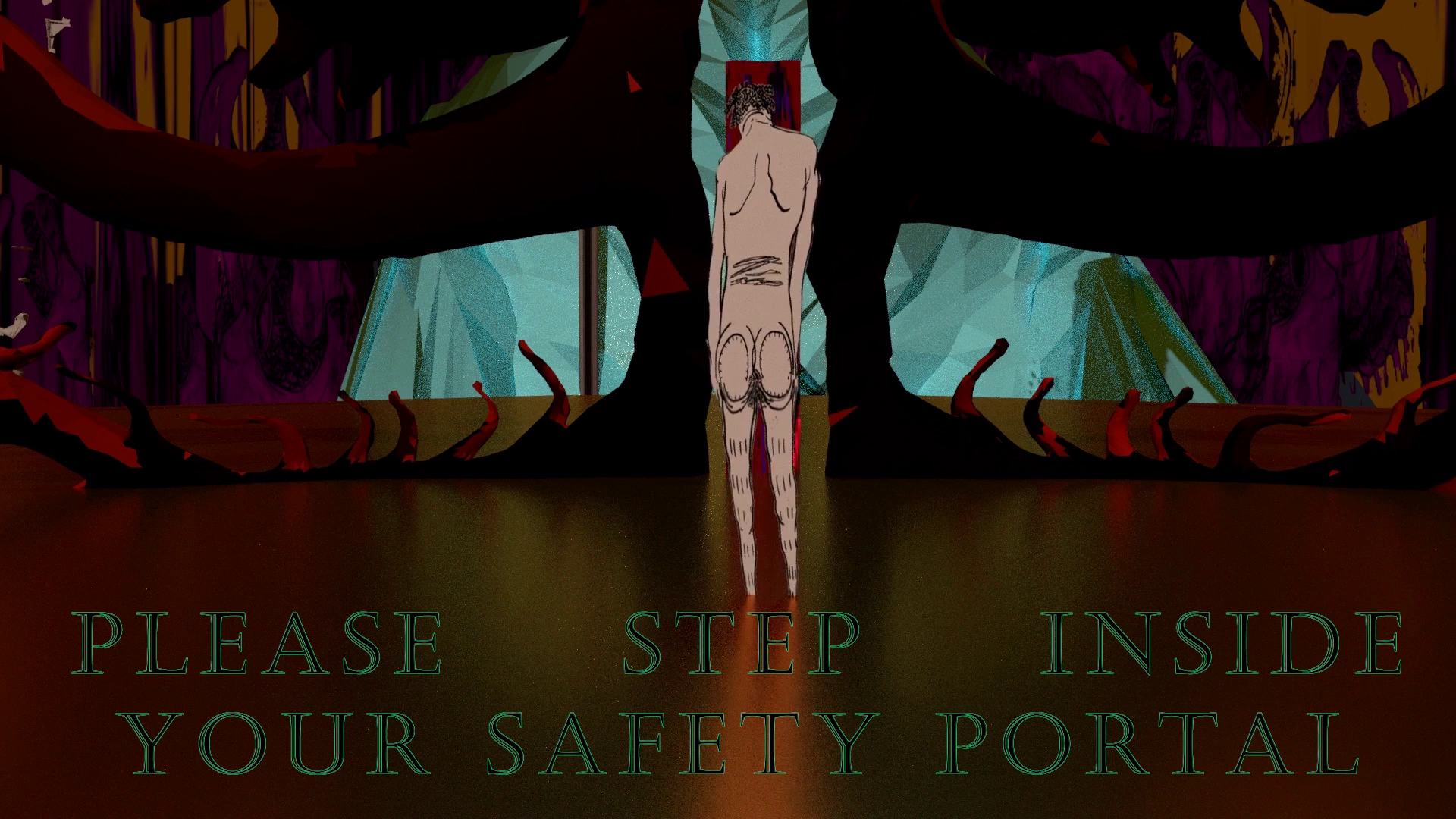
Danielle Braithwaite-Shirley, TRANS-PORT ME, 2019
TRANS-PORT ME is a Karaoke film about trying to remain safe while traveling and failing. It is a recording of how being demonised as a trans body makes you long for safety that always seems just out of reach. A lived experience that makes you long to be able to teleport from location to location to help preserve your life. Originally the video was going to be a film about reclaiming a demonised trans body but instead it failed to do so and fell into questions over what feeling unsafe means.
Danielle Brathwaite-Shirley is an artist working predominantly in animation, sound, performance and Video Games to communicate the experiences of being a Black Trans person. Their practice focuses on recording the lives of Black Trans people, intertwining lived experience with fiction to imaginatively retell Trans stories. Spurred on by a desire to record the “History of Trans people both living and past” their work can often be seen as a Trans archive where Black Trans people are stored for the future.
Throughout history, Black queer and Trans people have been erased from the archives. Because of this it is necessary not only to archive our existence, but also the many creative narratives we have used and continue to use to share our experiences.
Danielle’s work has been shown in Science Gallery, MU, Barbican, Tate ,Les Urbains as well as being part of the BBZ Alternative Graduate Show at the Copeland Gallery.
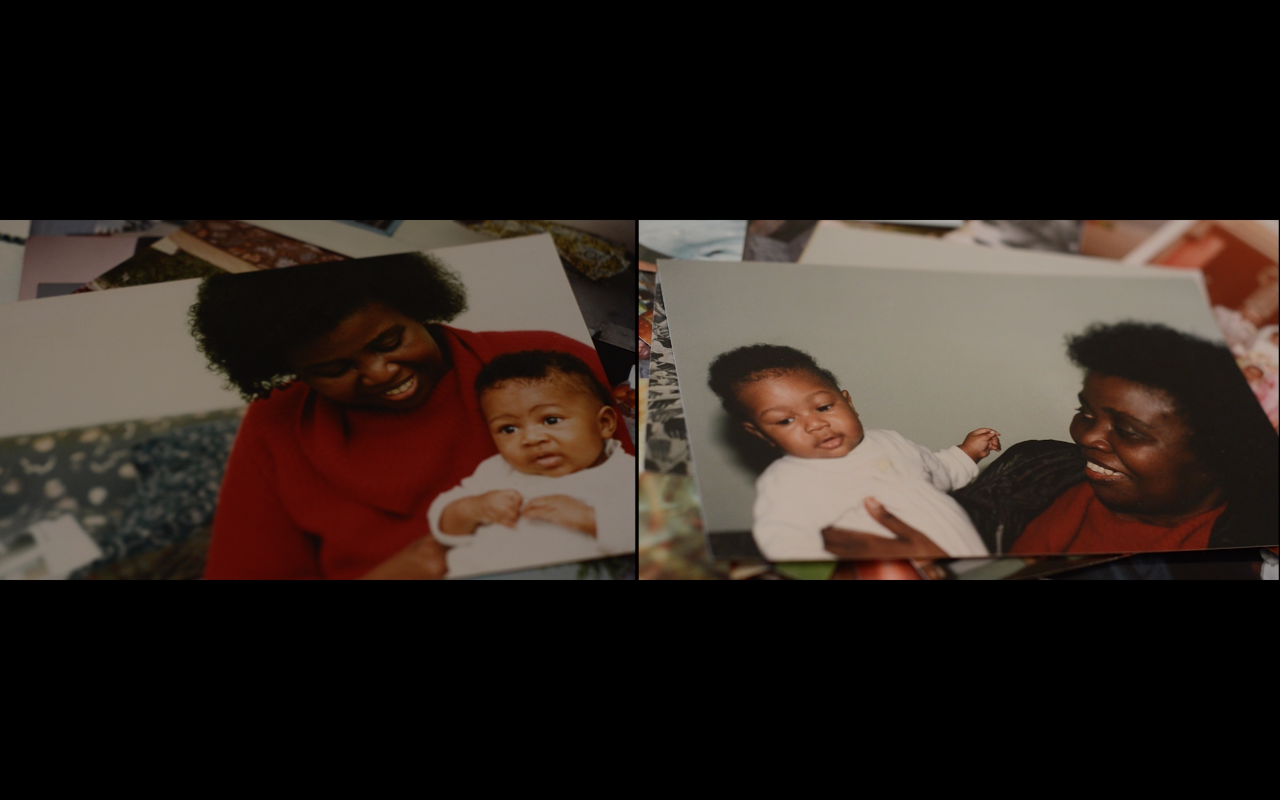
Rabz Lansiquot, Nyansapo, 2017
“While teaching me how to cook Jollof Rice, my grandmother tells me about her experience back home in Ghana as it became the first African country to gain independence from colonial rule, and her life in the UK since moving to London in the 1960’s. This two-channel film explores family history, race, nation, intergenerational relationships, and the often ignored stories of the African women who have lived the majority of their lives in England.
Nyansapo is the Adinkra symbol represented by the “wisdom knot”, a symbol of wisdom, ingenuity, intelligence and patience.”
Rabz Lansiquot is a filmmaker, programmer, curator, and DJ. Alongside Imani Robinson, they are a member of the artistic and curatorial duo Languid Hands who are currently the Cubitt Curatorial Fellows for 2020-21. They were a leading member of sorryyoufeeluncomfortable (SYFU) collective from its inception in 2014. Rabz was Curator In Residence at LUX Moving Image in 2019, developing a public and educational programme around Black liberatory cinema. Their first solo exhibition where did we land, an experimental visual essay exploring the use of images of anti-black violence in film and media, was on view at LUX in Summer 2019, presented alongside a programme of screenings and a study day. They have put together film programmes at the ICA, SQIFF, Berwick Film & Media Festival and were a programme advisor for London Film Festival’s Experimenta strand in 2019 and are on the selection committee for Sheffield Doc Fest 2020. Rabz is also training to deliver workshops in working with Super 8 and eco-processing at not.nowhere, and is a board member at City Projects.
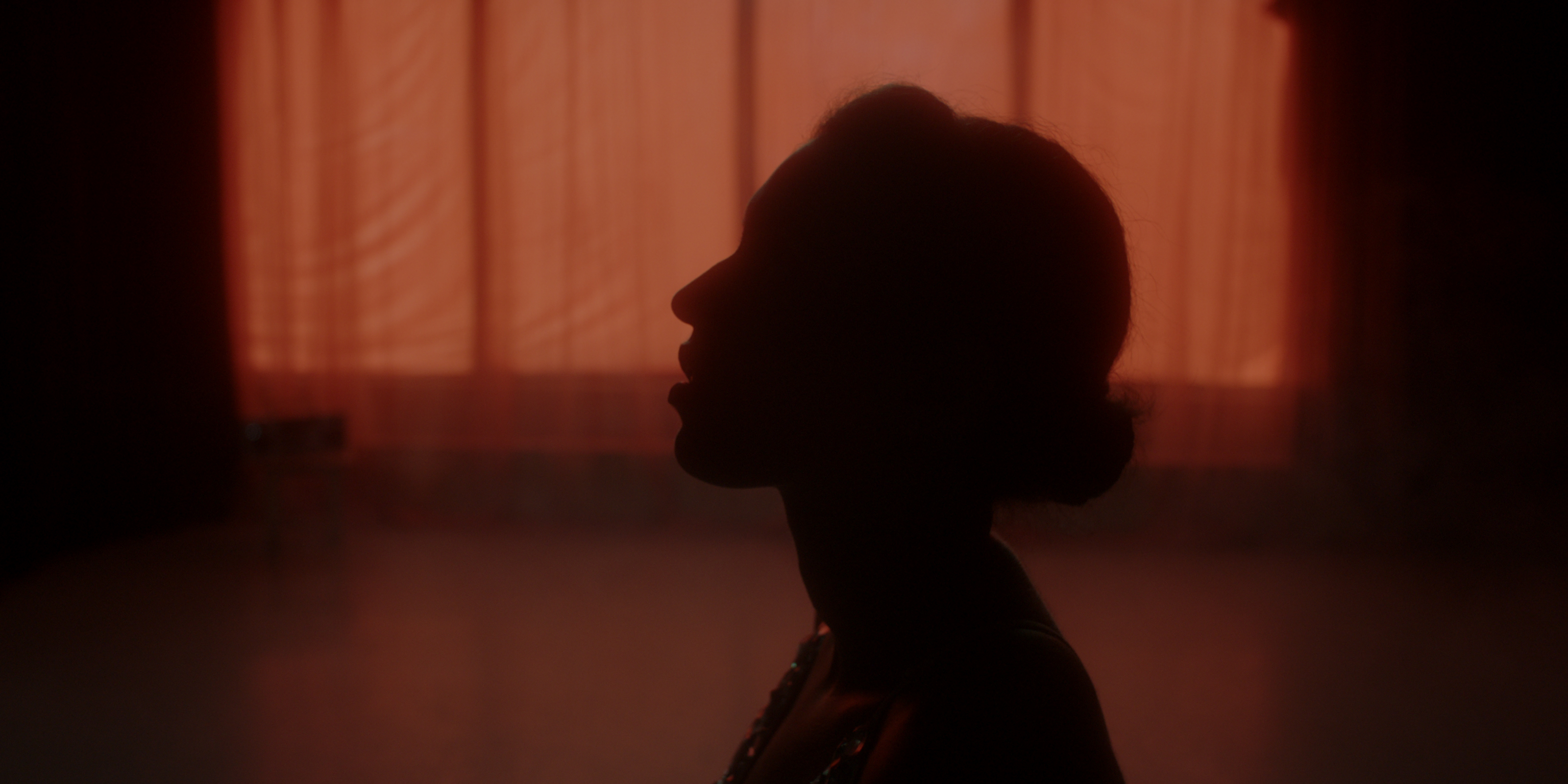
Jennifer Martin, TEETH, 2019
In ‘TEETH’ an eager couple, Charlotte and Myles are interrogated by two Home Office agents about their spousal visa application. They endure a series of assessments that become progressively performative to attest to the legitimacy and acceptability of their relationship.
‘TEETH’ addresses the entanglement of love, power, and administration in the UK spousal visa process. In January 2017, former Home Secretary Amber Rudd wrote, ‘illegal and would-be illegal migrants and the public…need to know that our immigration system has “teeth”’. Her letter, written to then Prime Minister Theresa May, was leaked in April 2018 amid reporting on the Windrush Scandal. Teeth are the bite of the UK immigration system, its violence and desirous devouring.
Jennifer Martin lives and works in London, UK. Martin’s practice spans artists moving image, photography, and installation. Ongoing themes include the performativity of belonging and the instability of images. Recent solo exhibitions and commissions include TEETH, Primary, Nottingham (2019-20); Channel 6, Turf Projects, London (2019); and Britain Been Rotten, Cypher Billboards, London (2019). Recent screenings include 36 Kasseler Dokfest, Kassel (2019); B3 Biennial, Frankfurt (2019); EMAF No. 32, Osnabrück (2019). She is a graduate of the Royal College of Art (2018) and Slade School of Fine Art (2013). Martin was selected for the 2018 Stuart Croft Foundation Education Award, FLAMIN Fellowship 2019/20, was artist-in-residence at Kingsgate Workshops and selected for Hospitalfield’s Residency 2020. She is a co-director of not/nowhere, an artist workers’ cooperative run by Black artists and artists of colour, focusing on photochemical film, audio, and digital practices.
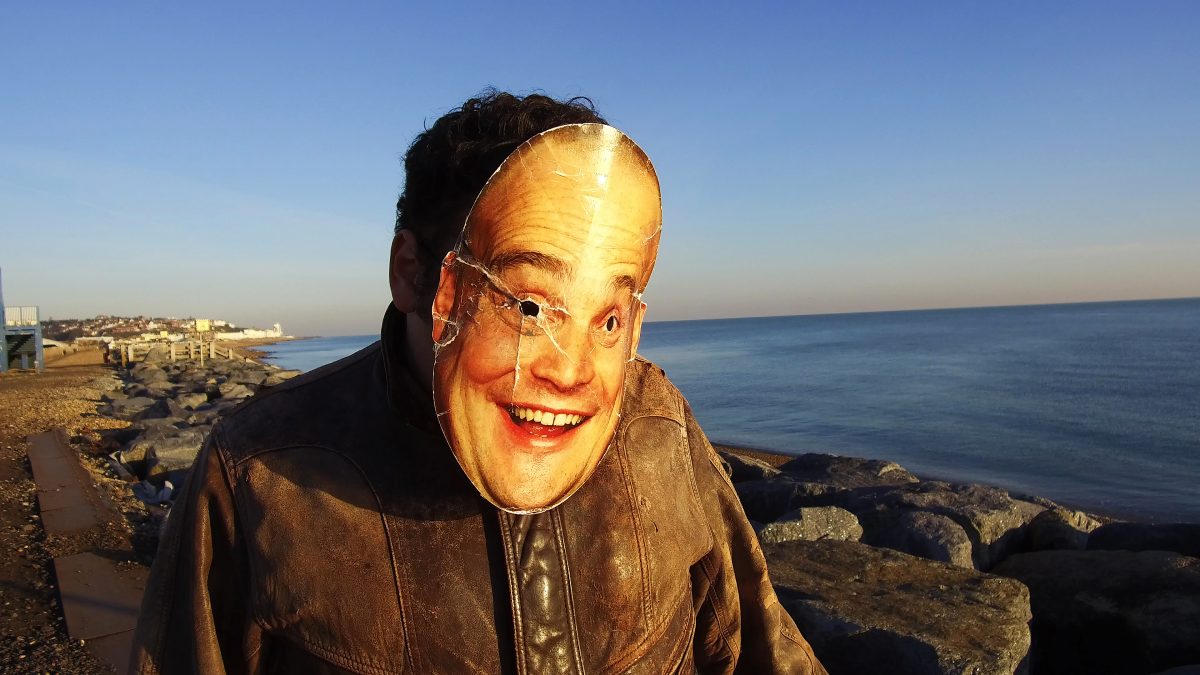
Sharif Persaud & Tim Corrigan, The Mask, 2017
The Mask is a short film about autism and identity featuring writer and director Sharif Persaud. As he journeys along a coastal footpath, Sharif describes what it means to have autism while all the time wearing his favourite celebrity mask. He finally arrives at his destination where he comes face to face with his alter-ego.
Sharif Persaud has a long association with Project Art Works and has been a key contributor to much of PAW’s recent output, including several film projects. Placing himself at the centre of his work Sharif uses different art forms; video, photography, drawing, painting and printing, to reflect the narrative of his life. Through his work we see the world from his idiosyncratic perspective, the different forces that have impacted him in the past and how these shape his thinking about the future.
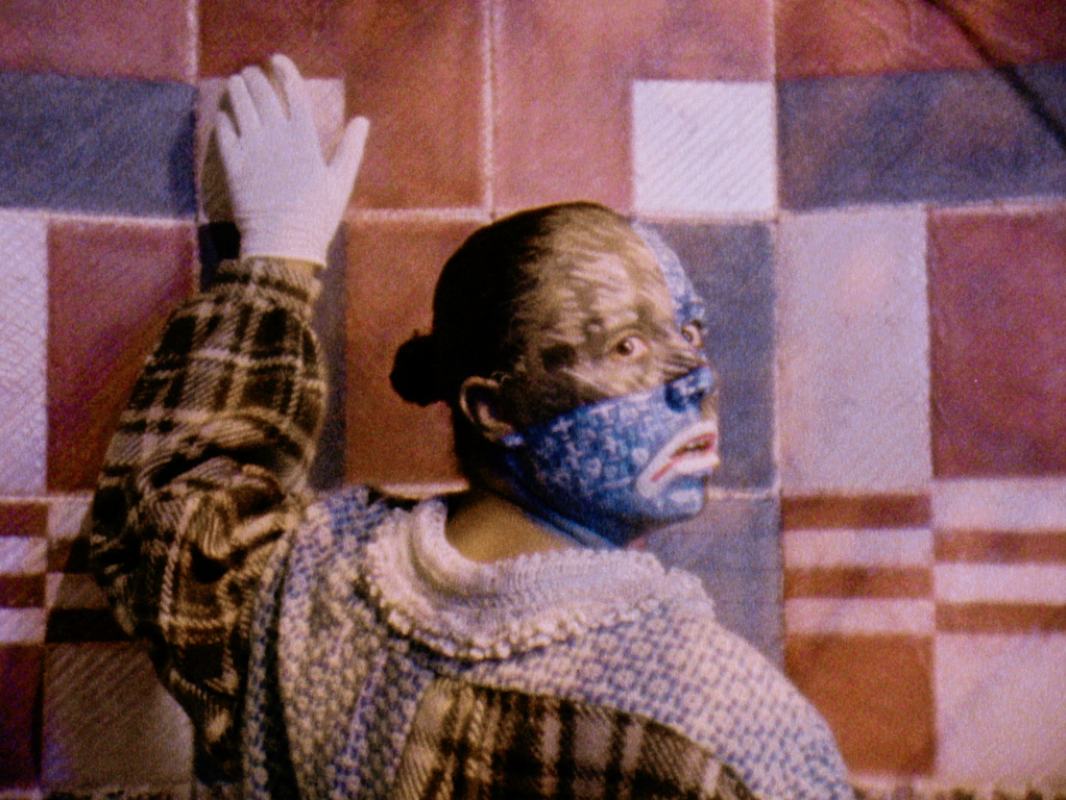
Tanoa Sasraku, O’ Pierrot, 2019
Employing the narrative of Pierrot the Clown and the aesthetic of Kenneth Anger’s pioneering avant-garde, queer film Rabbit’s Moon, O’ Pierrot explores the quest for British identity from a lesbian, mixed-race, British perspective.
The life goal of Pierrot Mulatto (played by the artist) is to catch a giant sycamore seed that spins down every day from the arms of Harlequin Jack, a crazed black man in whiteface, driven mad by his own quest for British acceptance. Jack toys with Pierrot throughout the story, performing a satirical essence of white British sensibility whilst referencing early minstrel troupes’ caricatures of the post-slavery, black populace. Mixed-race Pierrot is encouraged to strive for her ‘white potential’ whilst battling rejection, rage, and the bending of time amidst the English countryside.
The story of the black, British experience: one driven by misplaced loyalty, melancholy, and historical reprise stands as a mirror to the traditional tale of Pierrot’s existence under Harlequin’s thumb. This forms the narrative pillar for Sasraku’s semi-autobiographical fairytale, shot on 8mm film, whilst the script is built upon a colliding of verses from the Jim Crow-era song ‘Jump Jim Crow’ and lesser-known passages from the British National Anthem.
Tanoa Sasraku works with themes examining the intersections of her identity as a young, mixed-race, gay woman and the endeavour to draw these senses of self together as one in 21st century England.
Sasraku is based in London, England and her practice shifts between filmmaking and flag-making.
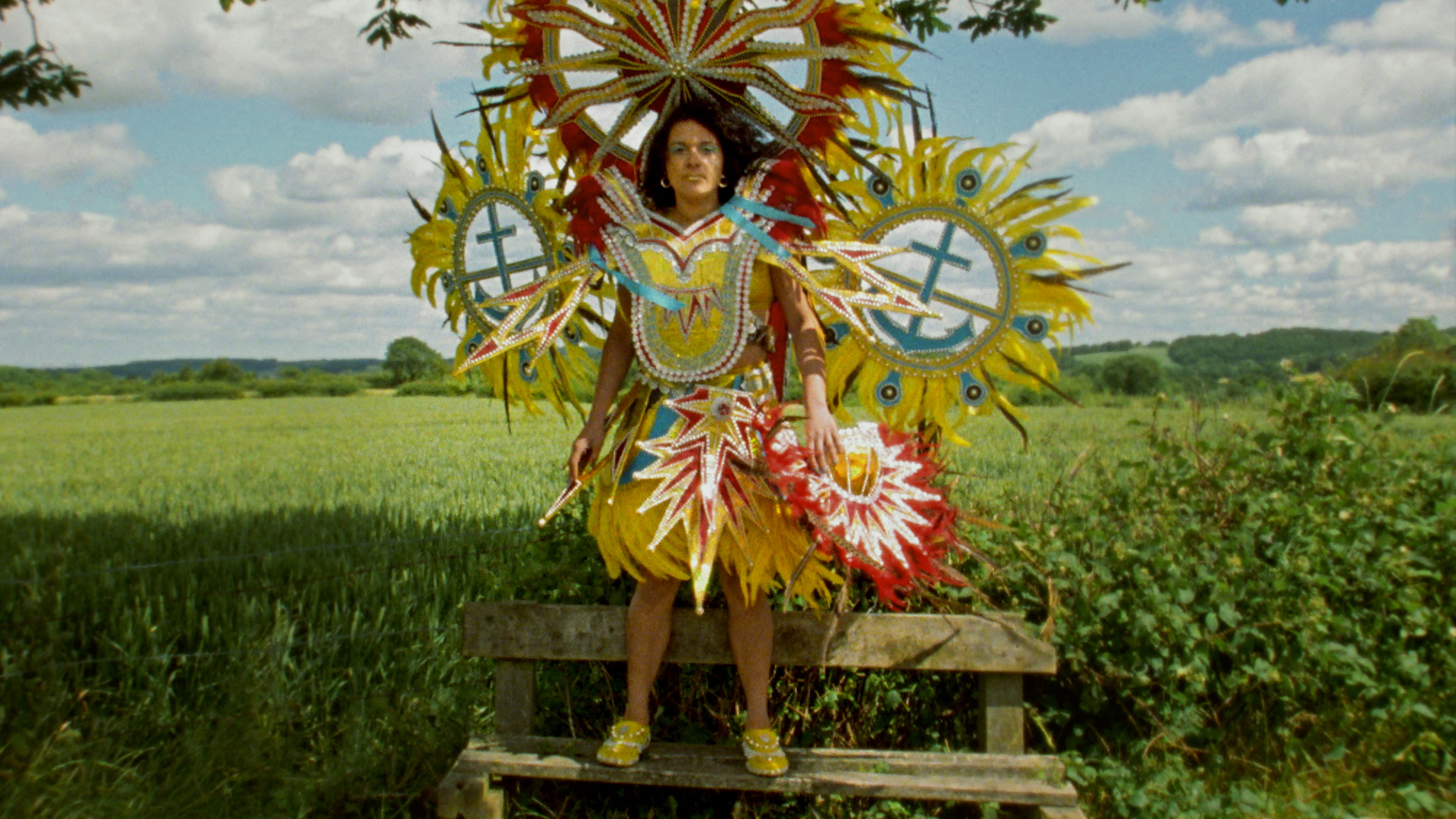
Rhea Storr, A Protest, A Celebration, A Mixed Message, 2018
Celebration is protest at Leeds West Indian Carnival. A look at forms of authority, A Protest, A Celebration, A Mixed Message questions who performs, who spectates and the power dynamics therein. Following Mama Dread’s, a troupe whose carnival theme is Caribbean immigration to the UK, we are asked to consider the visibility of Black bodies, particularly in rural spaces.
Rhea Storr is an artist filmmaker who explores the representation of Black and mixed race cultures. Masquerade as a site of protest or subversion is an ongoing theme in her work. So too, is the effect of place or space on cultural representation. On occasion she draws on her own rural upbringing, and British Bahamian identity. Rhea Storr often works in 16mm film; she considers that analogue film might be useful to Black artists, both in the aesthetics it creates and the production models it facilitates. She considers the ways in which images fail us or are resistive.
Recent screenings include Filmforum MOCA, Los Angeles, Chicago Underground Film Festival, European Media Art Festival, Berwick Film and Media Artist Festival, Hamburg International Short Film Festival, Kassel Doc Fest, Alchemy Film and Media Art Festival (programmer) and National Museum of African American History and Culture. Recent exhibitions include Somerset House and Artist Film International (including Whitechapel Gallery London, Bonniers Konsthall, Sweden and Istanbul Modern).She is the winner of the Aesthetica Art Prize 2020 and the inaugural Louis Le Prince Experimental Film Prize.
Selected is produced by videoclub and Film London Artists’ Moving Image Network. Supported by Arts Council England and Film London. Thanks to LUX for their support.
Film London Artists’ Moving Image Network
Film London Artists’ Moving Image Network (FLAMIN) supports London-based artists working in moving image, working in partnership to deliver a comprehensive programme including production award schemes, regular screenings, talks and events, as well as the prestigious annual Film London Jarman Award.






